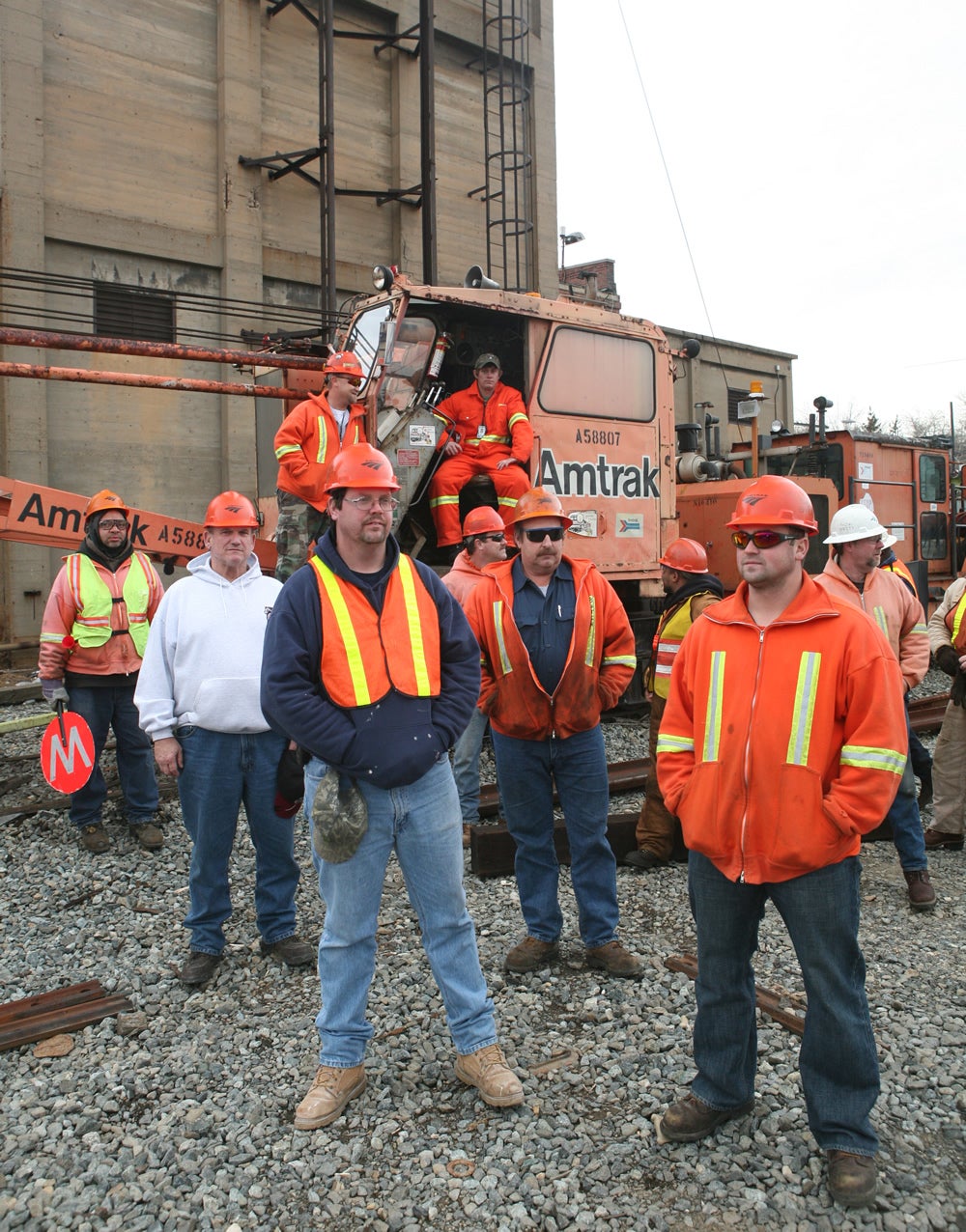Uncategorized
BMWED Members At Amtrak Have New Contract

A new contract went into effect in April for all members of the Brotherhood of Maintenance of Way Employes Division (BMWED) working for Amtrak. Wage improvements and secured work rules added up to a good contract for the 4,000 members. Also part of the same contract were the members of the Brotherhood of Railroad Signalmen (BRS) with which the BMWED bargained as a partner in the Passenger Rail Labor Bargaining Coalition (PRLBC).
“The contract outcome was good,” said John McAteer, a BMWED member for the past 21 years, working out of the 30th Street station in Philadelphia. “In addition to the wage rate increases, we were able to keep certain work rules, such as when overtime begins, even though Amtrak wanted that rule changed.”
A final and binding arbitration decision which increases the wage rates of Amtrak maintenance of way employees was reached March 25 and amounts to an average raise of 3.1 percent a year.
The wage increases are retroactive to Jan. 1, 2010, and back pay will be paid to all BMWED members, active or retired, who earned money during that period. Amtrak had planned to change the overtime work rule to start overtime calculations only after 40 hours of work, but the union bargaining coalition put up a strong defense and kept the rule from changing.
A three-person panel of neutral arbitrators rendered the Amtrak contract decision which was negotiated by the PRLBC.
The agreement went into effect immediately and Amtrak agreed that there would be no delay in calculating and distributing the back pay.
Under the decision, the average back pay from Jan. 1, 2010 to April 1, 2014, after health and welfare cost sharing deductions are rendered, will be $11,496 for straight time calculation. All earned overtime during the back pay period will be paid as well. For example, if 20 percent of a member’s gross earnings were in overtime hours, the average back pay calculation would be $13,890.
“I know that my members in Lodge 3095 in Delaware are looking forward to receiving their back paychecks as a result of the new contract,” said Harry Dunfee, a 39-year BMWED member.
Dunfee represents maintenance of way members who repair the equipment that builds and repairs rail tracks from Rhode Island to Washington and out to Lancaster, Penn.
“As the safety liaison for the equipment repair crew on the Northeast corridor, I feel that my job has a purpose. When I get home after work, I believe I have accomplished something because I have helped keep our members safe,” Dunfee said.
Upgrading Amtrak
In addition to coordinating the contract negotiations, the labor bargaining coalition worked to ensure that all of the upgrades to the rail system will be performed by union workers, creating new jobs up and down the rail line.
At one point, Amtrak decided to subcontract upgrades to the catenary system (electrical wires that provide power to the Amtrak trains), but the union stepped in and convinced management that in the long run it would be better off, and more cost effective, to have trained, union members, specifically BMWED members, perform the work.
“Now Amtrak is going to hire more linemen all along the New York corridor wherever the replacement of the catenary system is required,” McAteer said. “Some of the system dates back to its very origins and its stamped, ‘PRR’ (Pennsylvania Rail Road) from when the lines were first built.”
In addition to the catenary system, certain portions of the Amtrak line are being retrofitted for use as high-speed rail, which is 160 miles per hour. Amtrak trains currently run at 130 mph at the most partly due to unavoidable curves in the line, as well as the age of the rail infrastructure. Practically all of the retrofitting work will be performed by BMWED members.
“Without the resolve of all of our members who supported the union and endured Amtrak’s nonsense throughout this struggle for a new contract, we would not have a new contract,” said Jed Dodd, BMWED General Chairman of the Pennsylvania Federation and Chairman of the PRLBC.
“Working with our brothers in the BRS within the PRLBC framework proved a success and illustrates what we can accomplish when we work together,” said BMWED President and International Vice President Freddie Simpson.